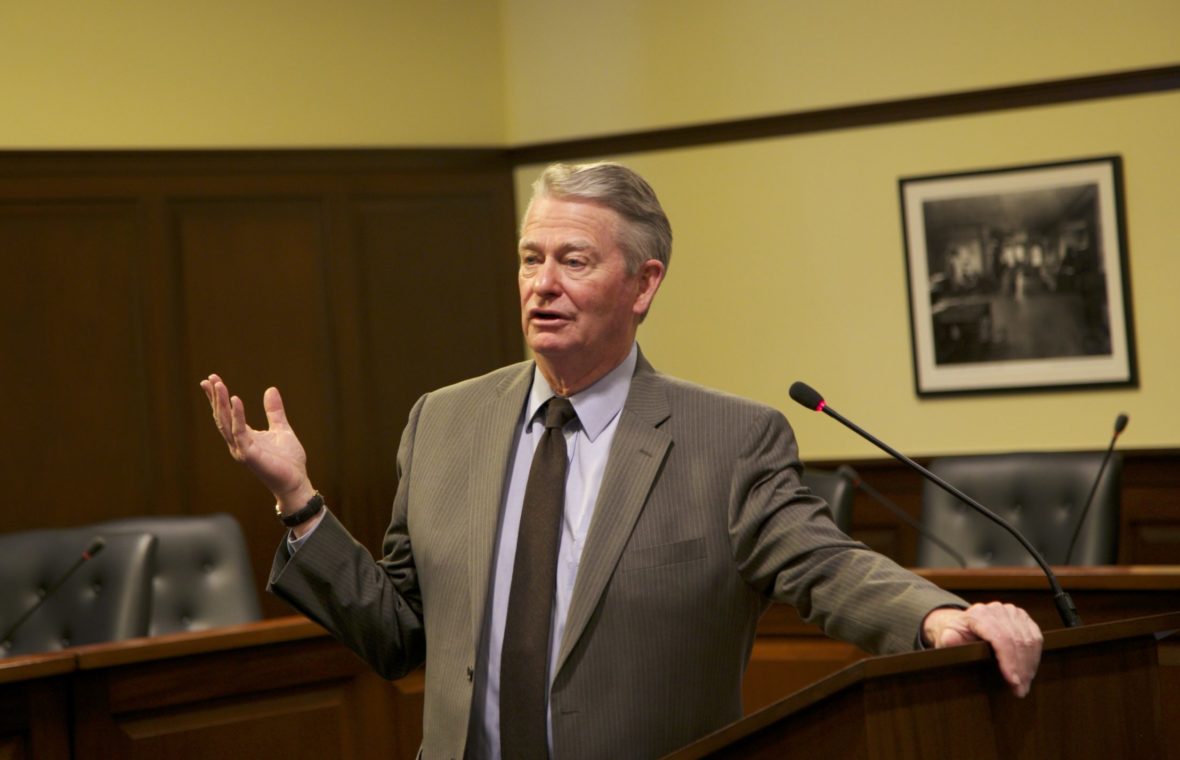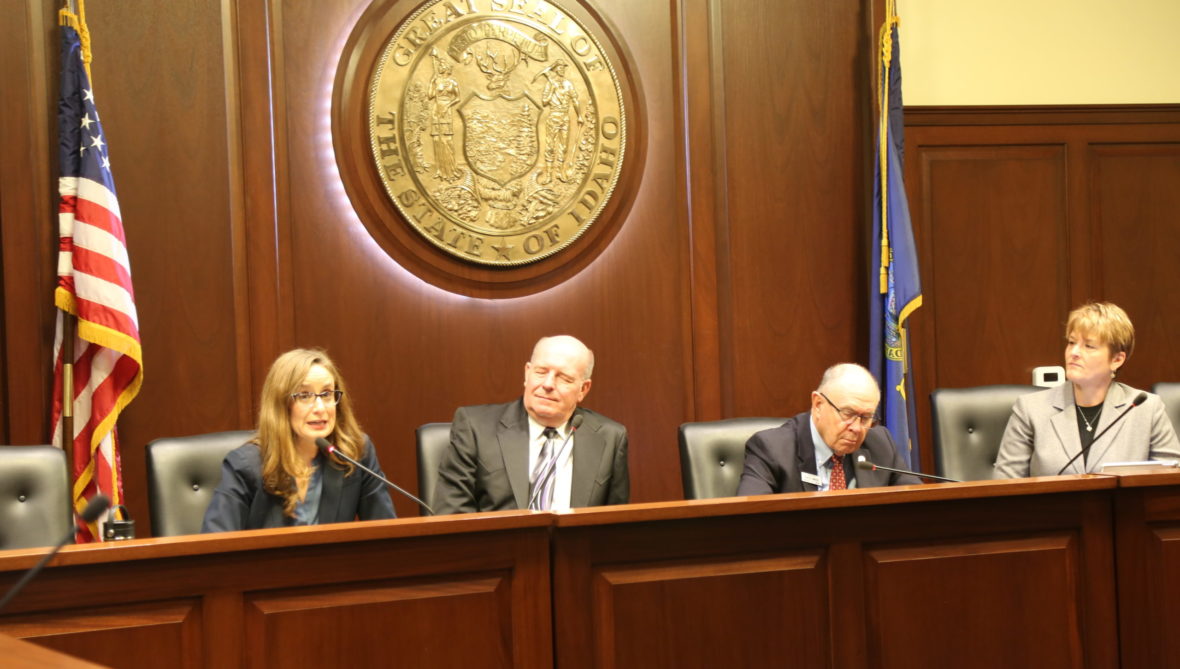
There are plenty of reasons to expect the unexpected from the 2023 Legislature.
- A huge surplus: $1.5 billion for lawmakers to wrangle over.
- A big year of turnover: 45 lawmakers who weren’t in office a year ago, and new chairpersons running just about every key legislative committee.
- A long list of complicated issues: property tax relief, Medicaid spending; repairing and replacing school buildings; school choice.
All of these factors can contribute to chaos.
But here’s one guy who’d like to keep the 2023 session as boring as humanly possible: Gov. Brad Little.
Nothing personal, mind you. It’s just that Little would like the 2023 session, and the launch of his second term, to look a whole lot like 2022, and the end of his first term.
Little made that abundantly clear Thursday morning, when he fielded reporters’ questions during an hour-long legislative preview, sponsored by the Idaho Press Club. To the extent that he was willing to offer spoilers — and preempt his own State of the State address Monday afternoon — Little talked a lot about staying the course.
And nowhere was that more true than in education:
- Touting the product of September’s special session — a law to cut taxes by $650 million, boost K-12 budgets by $330 million a year and create an $80 million fund to prepare Idahoans for high-demand jobs — Little said parceling out the education money will be a top priority for 2023.
- After the 2022 Legislature put $72 million into literacy — a $46 million increase — the state is making “great strides” in early reading, Little said Thursday. Now is not the time to take the foot off the gas, he said.
- The 2022 Legislature also followed Little’s lead, putting more than $180 million of one-time and permanent money into improved benefits for school employees. But that didn’t fully fund the insurance initiative, and Little acknowledged Thursday that there’s more work to do.
No surprises. Which in itself is no surprise.
Governors are famously reluctant to reveal any new ideas before the State of the State, the launch of the legislative session. Little is no exception to that rule. So at times Thursday, he was deliberately vague. He sidestepped a question about school choice — which is likely to be the hottest education debate of 2023. As for Idaho’s costly school construction and maintenance backlog, Little didn’t say much about the state’s role in sharing the cost with local districts. He promised to say more Monday.
In a way, these debates get real Monday, when Little presents his legislative agenda and his 2023-24 budget proposal. But that doesn’t mean lawmakers are waiting on Little, or are lacking for opinions. This was apparent later Thursday morning, when Republican and Democratic leaders had their turn before reporters.

Noting warning signs of an economic slowdown, House Speaker Mike Moyle said the state has probably been spending too aggressively. “The past couple of years I think we’ve gone a bit overboard,” said Moyle, R-Star. “It’s always the good times that get you into trouble, not the bad times.”
But Senate Minority Leader Melissa Wintrow and House Assistant Minority Leader Lauren Necochea, both D-Boise, urged the state to do more to help schools hire and keep staff. And Necochea pointed out that Idaho schools still rank at or near the bottom in national rankings for K-12 spending. “We have a long way to go.”
Necochea also suggested addressing the building backlog by allowing schools to collect impact fees on new homes — a perennial idea that has never gotten through the Legislature. Senate President Pro Tem Chuck Winder took a dim view of the idea, saying impact fees would only drive up home prices, making Boise’s housing market even less affordable.
And while Little dodged the question of school choice, Winder was eager to weigh in. With the current budget surplus, Winder said, the state can help some parents put their kids into private schools, without compromising Idaho’s constitutionally mandated system of public schools. “We have the luxury right now to do a little bit of both,” said Winder, R-Boise.
It’s pretty much expected that veteran lawmakers and legislative leaders will come to town with ideas, but Moyle isn’t expecting the newbies to be bashful, either. “It’s going to be awesome,” he said.
Awesome, unless you’re a governor who wouldn’t mind a little bit of boring.
Each week, Kevin Richert writes an analysis on education policy and education politics. Look for it every Thursday.
More legislative previews: Read our profiles of new Senate Education Committee Chairman Dave Lent, and new House Education Committee Chairwoman Julie Yamamoto. Listen to education lobbyists preview the 2023 session on Kevin Richert’s podcast.
